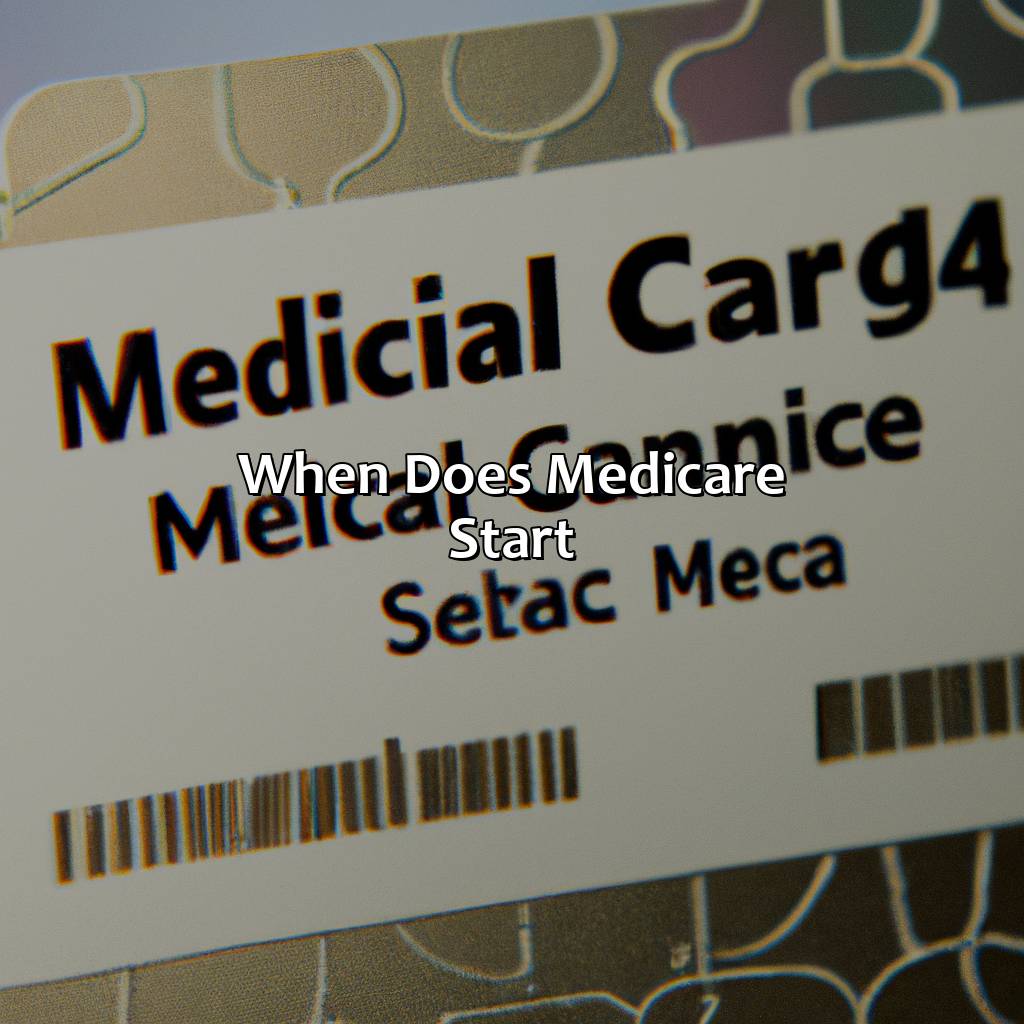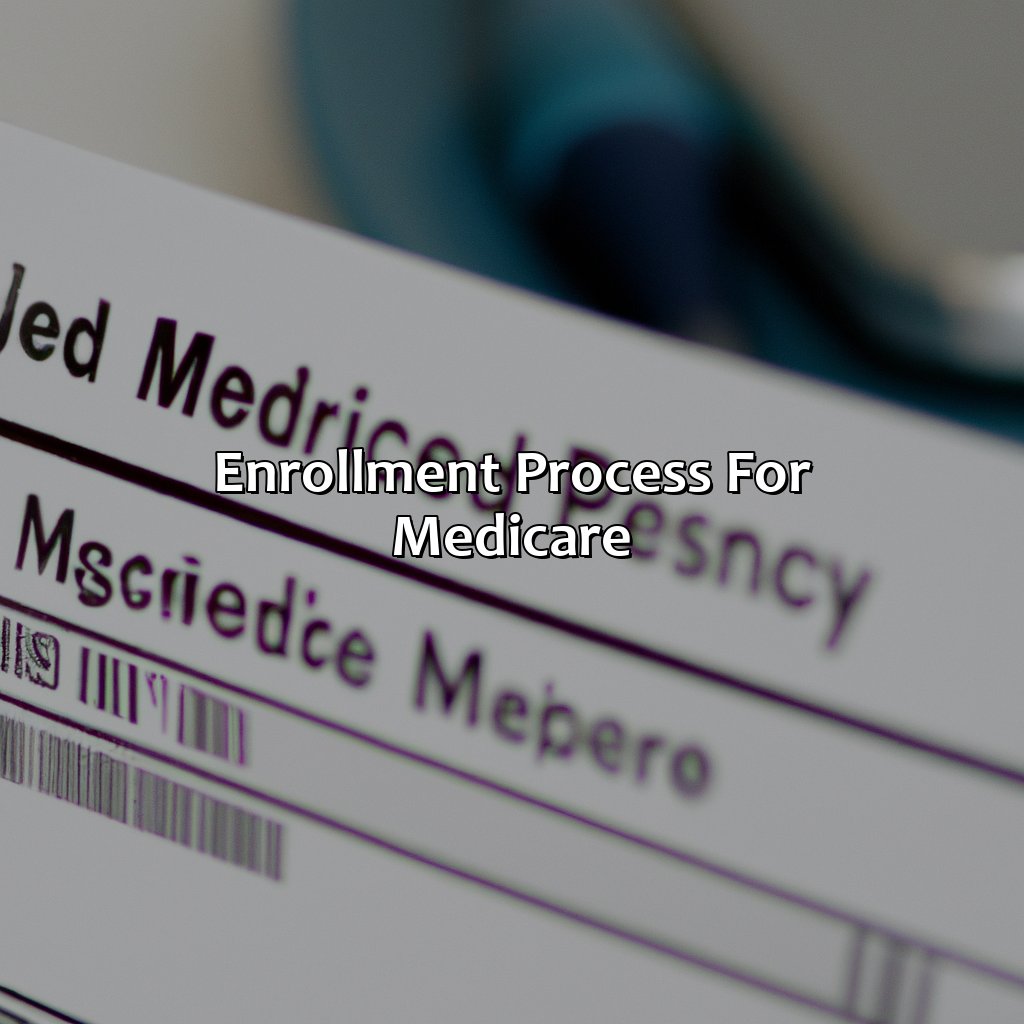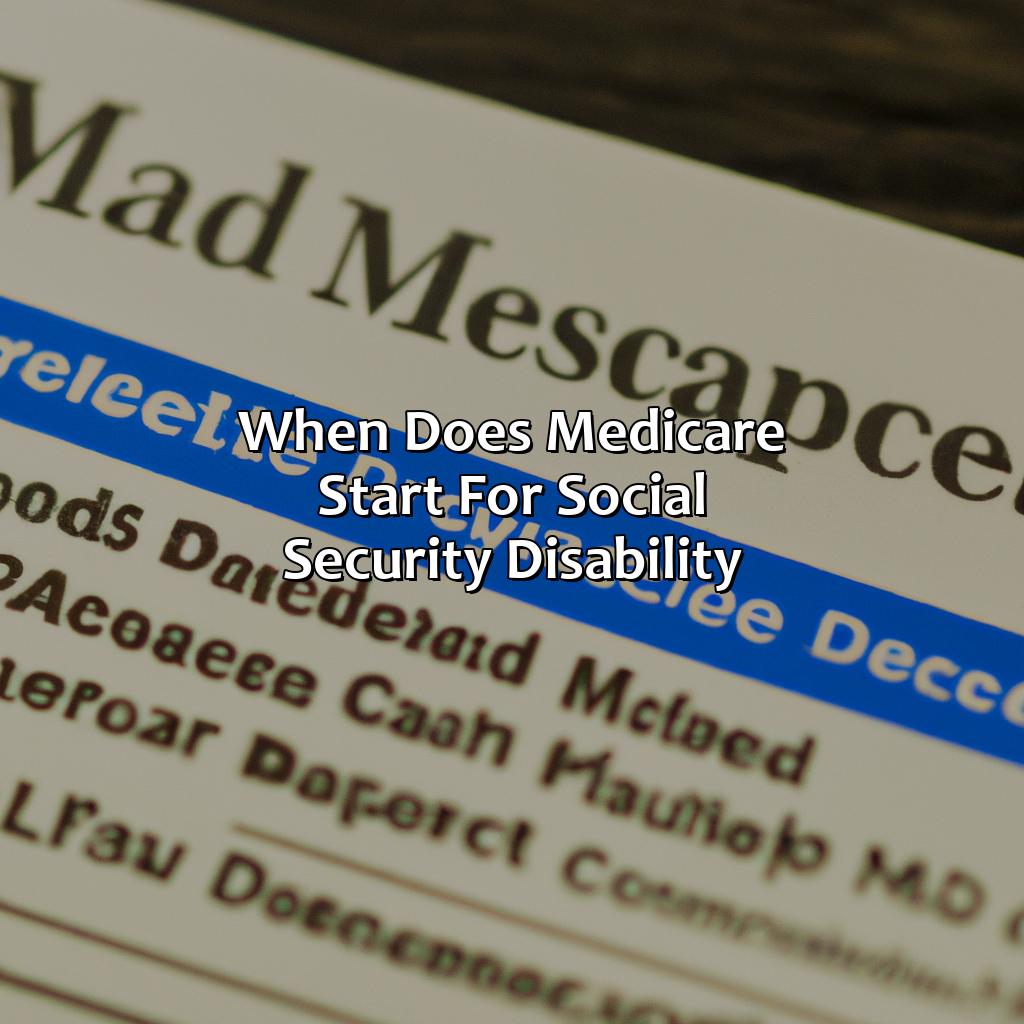When Does Medicare Start For Social Security Disability?
Key Takeaway:
- To be eligible for Medicare, individuals must have worked long enough to earn a certain number of credits or have a medical condition that qualifies them for Social Security Disability Insurance (SSDI).
- If you are approved for SSDI, there is a 24-month waiting period before you become eligible for Medicare coverage.
- To enroll in Medicare, you can either apply online, by phone, or in-person at your local Social Security Administration office. It’s important to enroll during your Initial Enrollment Period to avoid late enrollment penalties.
Are you looking to understand when Medicare begins after you’ve received Social Security Disability? You’re in the right place! In this article, we will explore a timeline of when you can receive Medicare coverage and how to start accessing it.
When Does Medicare Start?
To work out when your Medicare begins if you’re a Social Security Disability recipient, let’s look into the conditions for eligibility and the timetable for signing up.
Get the answer by knowing the rules for eligibility and when you need to act to ensure your Medicare coverage is in time.

Image credits: retiregenz.com by James Duncun
Eligibility Requirements for Medicare
Medicare eligibility criteria vary for different individuals and situations. Factors such as age, disability status, enrollment period, and work history determine the eligibility for Medicare coverage. For people who are 65 or older, Medicare starts automatically. However, those who have certain disabilities or medical conditions may be eligible before the age of 65. Moreover, it is essential to understand the nuances of enrollment periods and qualifying events for each part of Medicare to ensure timely coverage.
Research shows that nearly 62 million people were enrolled in Medicare by the end of 2020.
Disability may slow you down, but Medicare can speed up your healthcare.
Medicare Timeline for Social Security Disability Recipients
For those who receive Social Security Disability benefits, Medicare starts automatically after 24 months of receiving payments. This two-year waiting period begins with the onset date of disability. Once enrolled, SSDI recipients can also benefit from the Medicare Advantage plan.
If applicants have a qualifying medical condition like end-stage renal disease or amyotrophic lateral sclerosis (ALS), they may not have to wait for more than the six months, generally required under SSDI plans. Once they have met the eligibility criteria and provisions set by Medicare management.
Pro Tip: Persons with permanent disabilities should apply for Social Security Disability Insurance programs within five years of disability onset to qualify for full retroactive payments.
Enrolling in Medicare is like getting a flu shot – it’s quick, painless, and comes with some great benefits.
Enrollment Process for Medicare
Enroll in Medicare with ease! Get the “Enrollment Process for Medicare” guide. It has subsections like “How to Apply for Medicare Benefits” and “Common Questions about Medicare Enrollment“. No more missed eligibility dates!

Image credits: retiregenz.com by Joel Woodhock
How to Apply for Medicare Benefits
To obtain Medicare coverage, an individual must apply for the benefits. The process involves specific steps and criteria. Below are the details on how to apply for Medicare benefits.
- Determine eligibility for Medicare coverage based on age, disability or diagnosis of end-stage renal disease.
- Select a plan that meets coverage needs, such as Original Medicare or Medicare Advantage.
- Apply online at the Social Security Administration website or visit a local Social Security office.
- Provide personal information including name, birthdate, Social Security number, and supporting documents related to the type of enrollment.
- Be prepared to pay premiums or copayments according to the chosen plan.
- Await official confirmation of enrollment and start of Medicare coverage.
It is important to remember that individuals who have already been receiving Social Security Disability Insurance (SSDI) will be automatically enrolled in Medicare Part A and Part B after 24 months from their date of entitlement. There is no need for additional action.
Pro Tip: It may be helpful to consult with an expert to identify which plan provides optimal care based on unique medical needs.
Why enroll in Medicare when you can just cross your fingers and hope nothing goes wrong?
Common Questions About Medicare Enrollment
When do social security disability recipients enroll in Medicare? Individuals receiving social security disability benefits are automatically enrolled in Medicare after 24 months of benefit payments, starting on the 25th month. Hence, there is no need for them to enroll separately. As for those who have Lou Gehrig’s disease or End-Stage Renal Disease (ESRD), the enrollment starts sooner than 24 months.
What Are The Available Paths for Enrolling in Medicare?
- Social Security Administration(SSA) handles enrollments for Part A and B.
- Enroll first in Part A and B via SSA.
- Sign up with a private insurance business that provides Medicare Advantage plans together with prescription drug coverage; they fall under Part C.
- Alternatively, you can purchase a standalone prescription drug plan(PDP). Known as Part D.
Unique Details About Medicare Enrollment
Missing your first enrollment period may result in penalties, with regards to Parts A, B, and D. Regardless if you don’t expect to use the benefits presently. Long-term healthcare expenses can balloon from critical medical situations that may arise beyond your control/risk appetite.
True History About The Enrollment Process
The most significant modification ever made to Medicare was signed into law by President Obama on March 23, 2010: the Student Aid and Fiscal Responsibility Act of 2009. It included numerous essential modifications that will alter Medicare going forward forevermore. Among other provisions are enormous new subsidizations for prevention/ wellness care services available cost-free to beneficiaries beyond established care practices.
Five Facts About When Medicare Starts for Social Security Disability:
- ✅ Most individuals who qualify for Social Security Disability benefits become eligible for Medicare after a 24-month waiting period. (Source: SSA)
- ✅ The 24-month waiting period begins on the date of the individual’s first entitlement to disability payments, not the onset date of their disability. (Source: Medicare.gov)
- ✅ Individuals with Amyotrophic Lateral Sclerosis (ALS) automatically qualify for Medicare as soon as their disability benefits start. (Source: SSA)
- ✅ Individuals with End-Stage Renal Disease (ESRD) may be eligible for Medicare benefits even if they haven’t completed the 24-month waiting period. (Source: Medicare.gov)
- ✅ The timely enrollment in Medicare after the 24-month waiting period can prevent late-enrollment penalties and gaps in healthcare coverage. (Source: NCOA)
FAQs about When Does Medicare Start For Social Security Disability?
When does Medicare start for Social Security Disability?
Medicare will start for Social Security Disability beneficiaries after a 24-month waiting period from their date of disability onset.
Can I enroll in Medicare before the 24-month waiting period ends?
No, you cannot enroll in Medicare before the 24-month waiting period ends unless you have end-stage renal disease or amyotrophic lateral sclerosis (ALS).
Do I have to pay a premium for Medicare as a Social Security Disability beneficiary?
Yes, you will pay a premium for Medicare Part B as a Social Security Disability beneficiary. The premium amount is based on your income.
What is the difference between Medicare Part A and Part B?
Medicare Part A covers inpatient hospital care, skilled nursing facility care, hospice care, and home health care. Medicare Part B covers outpatient services, such as doctor visits, medical equipment, and preventive care.
What other benefits do Social Security Disability beneficiaries receive besides Medicare?
Social Security Disability beneficiaries may also receive disability insurance payments, Supplemental Security Income (SSI), and access to rehabilitation services.
How do I enroll in Medicare as a Social Security Disability beneficiary?
You will automatically be enrolled in Medicare Part A and Part B after the 24-month waiting period ends. If you need to enroll in Medicare before then due to end-stage renal disease or ALS, you can contact the Social Security Administration for assistance.


